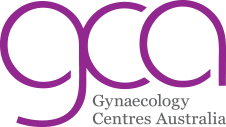In what can only be seen as a disturbing development for women, GPs and other specialist doctors have recently reported issues with the National Cervical Register within Australia. These issues have led to many medical professionals losing faith in the incentive, due to missing details including the absence in patient records of abnormal results and past treatments undertaken.
What is the Cervical Register?
The National Cancer Screening Register for cervical screening went live in Australia in December 2017, and is an incentive by the Australian government. It’s aim is to play a vital role in support of the National Cervical Screening Program and the National Bowel Cancer Screening Program, by providing doctors and other healthcare providers better access to health information for their patients. It also is intended to make it much easier for patients to take a greater role in and control of their own health care and outcomes.
What Cervical Register issues are doctors reporting?
GPs and gynaecologists have identified ongoing gaps in patient records on the cervical register that are not simply isolated incidents. In what is unacceptable for women and medical professionals, some doctors are finding that between 30-40% of colposcopy results in the revised screening program are not being accurately included in the register. Records of previous abnormal colposcopy results and past treatments are also missing from many patient records.
How has this happened? In part, inappropriately chosen operators may be at fault.
The register is operated by Telstra. The Australian government awarded Telstra a five-year contract to operate the register in 2016; this contract was worth $220 million. Telstra was awarded this contract by the federal government ahead of the Victorian Cytology Service, a not-for-profit organization with expertise in the realm of health screening programs. This was even though the telecommunications and information services company had no background or experience in operating health screening programs.
The initial rollout of the register was bungled by Telstra from the outset, and this resulted in a delay of seven months from planned delivery for Australia’s shift to HPV screening. (The new bowel screening register was also significantly delayed due to the issues described above). The issues were so great that by October 2018, there were calls for the government to terminate Telstra’s contract in favour of other options for the management of the register. Pathologists have been furious over the delays.
Telstra blamed the delays on the complexity involved in the collation of patient screening histories from different state registers.
Why is this an issue?
Accurate patient records are critical for doctors to provide proper care for their patients, and doctors rely on the cervical register to guide how they provide care. The register must operate seamlessly.
For example:
- Several women aged 25 missed their invitation to commence HPV screening when the register failed to send their notifications
- 12 letters were sent by the register in 2019 to deceased women
- Healthcare providers submitted no fewer than 10 formal complaints to the federal Department of Health
- Wording on letters sent has been ambiguous, with some women misunderstanding the new guidelines for transitioning from Pap Testing to HPV screening
Without an accurate, comprehensive register that doctors can trust, screening programs are compromised, and women are at greater risk. Retrieval of critical information is essential for timely diagnosis, treatment, and ongoing management of women’s health.
The move to HPV screening has been predicted to reduce cervical cancer mortality rates by 15% – but it requires a precise and operational cervical register to be optimally effective.
Gynaecology Centres Australia
Gynaecology Centres Australia offers services related to women’s health and vasectomy, including but not limited to first-trimester abortion services, management of miscarriages, contraception, and cervical health screening and management. With locations in Sydney, Newcastle, Wollongong, Gosford and Queanbeyan, we provide safe, supportive, confidential and compassionate care that is second to none.
For further advice or information, please call our clinic on (02) 9159 6894 or contact us today via our website.
